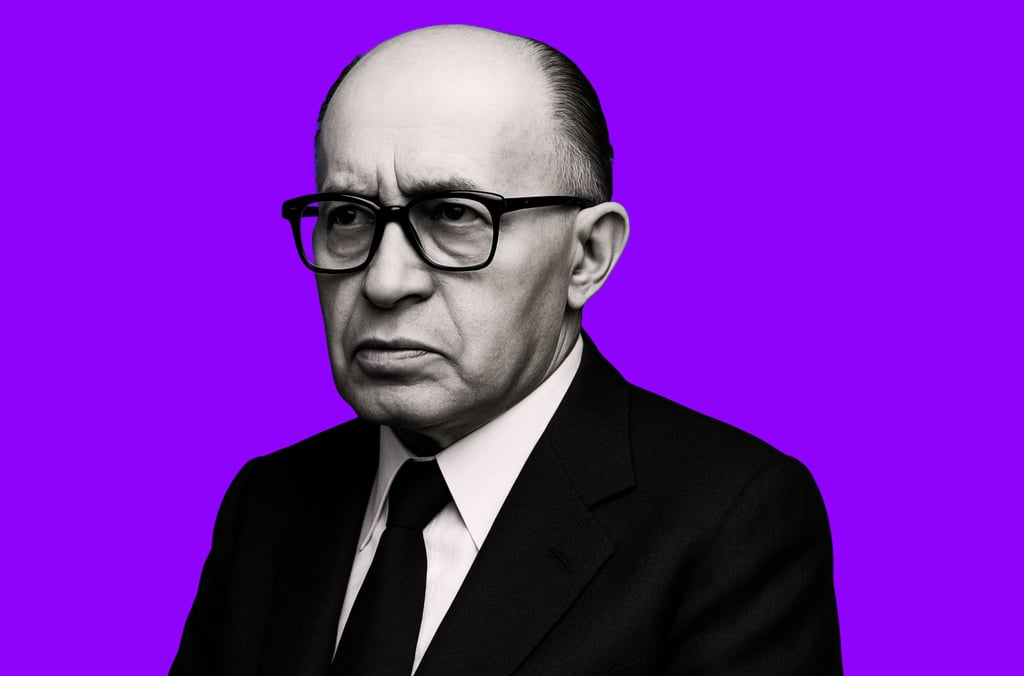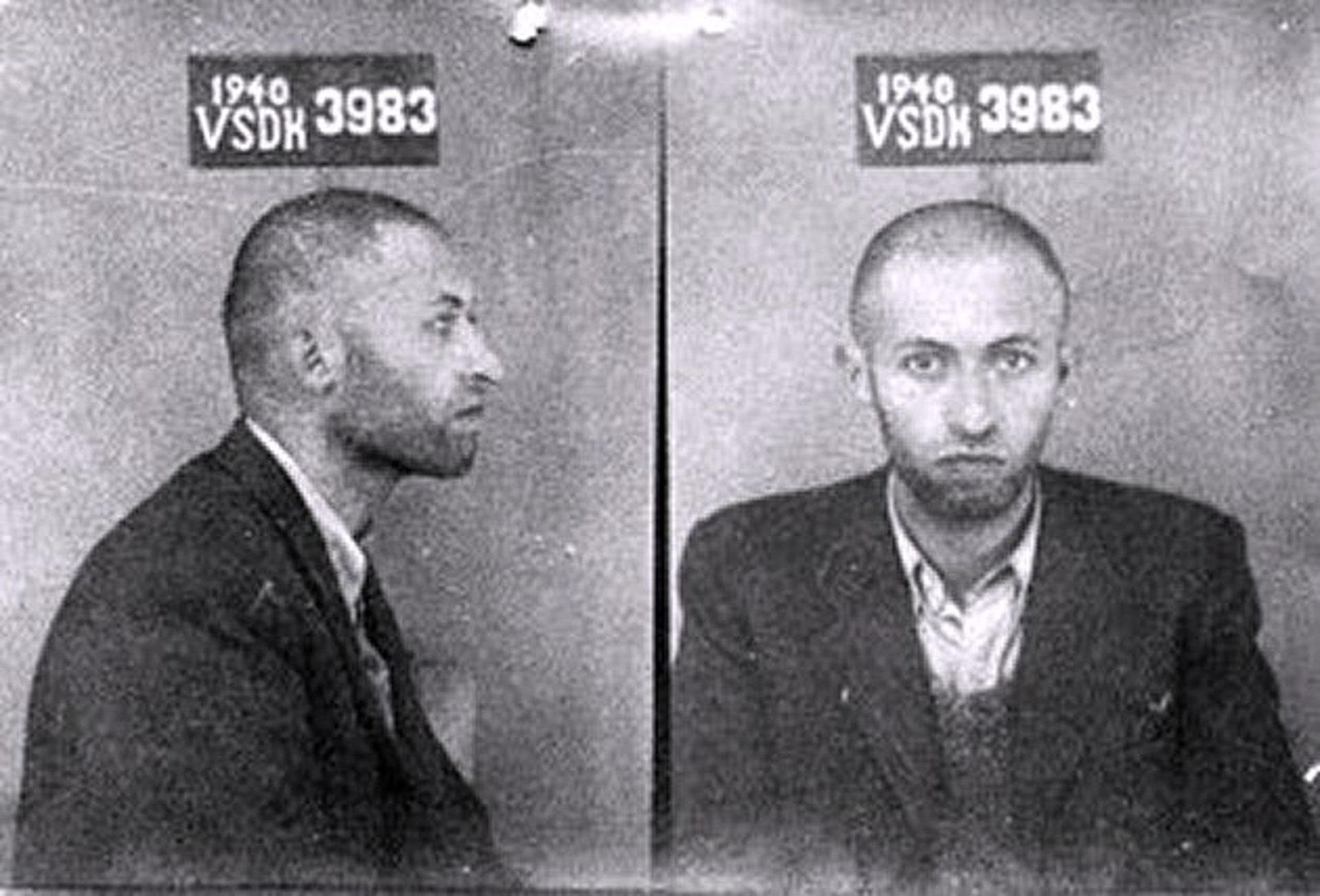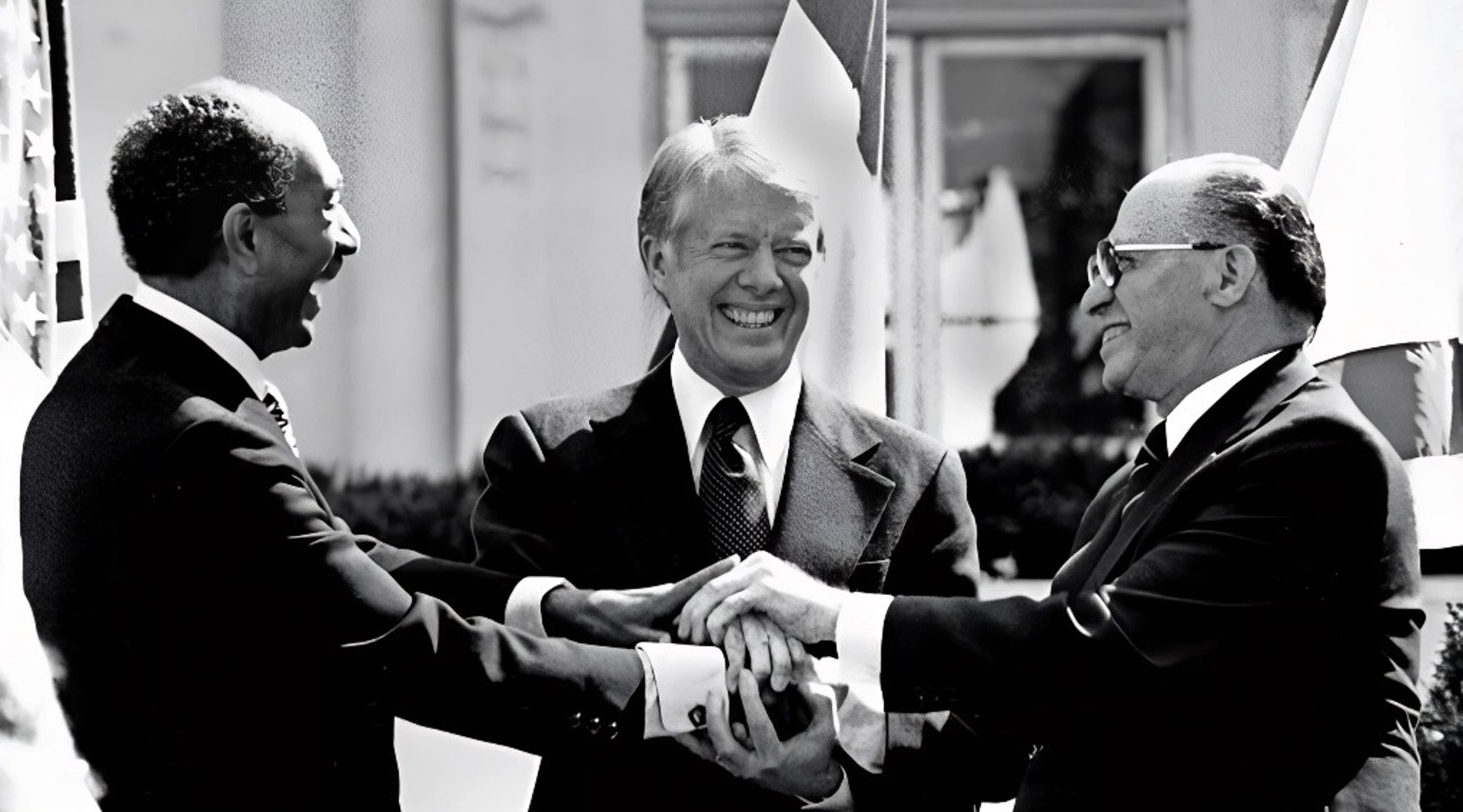Menachem Begin
From Underground Fighter to Head of State: Portrait of an Israeli Prime Minister
8/5/20254 min read


A Youth of Exile and Activism
Menachem Begin was born on August 16, 1913, in Brest-Litovsk, then part of the Russian Empire and now located in Belarus. His birth name was Mieczysław Biegun. Raised in a Zionist Jewish family, he became active early in the Betar youth movement, founded by Ze’ev Jabotinsky — a leading figure of right-wing Zionism.
After the Soviet takeover of Brest in 1939, following the Nazi and Soviet invasion of Poland, Begin was arrested by the NKVD in 1940 while in Vilnius. The city had recently been annexed by the USSR, and his affiliation with Betar — considered by the Soviets to be a nationalist and counter-revolutionary organization — led to his imprisonment. He was sentenced to eight years of hard labor and deported to a gulag in the Ural Mountains.
In 1941, after the Nazi invasion of the Soviet Union, Begin was released under the Sikorski–Maisky Agreement between the USSR and the Polish government-in-exile. He joined General Władysław Anders’s Polish army, which was forming on Soviet soil, and eventually left the USSR with that army. He arrived in Mandatory Palestine in 1942, where he adopted the name Menachem Begin and committed himself fully to the Zionist struggle, leaving his Polish identity behind.

Head of the Irgun: A Clandestine Fighter
In British Mandatory Palestine, Begin became the leader of the Irgun (Etzel), a Zionist paramilitary group considered terrorist by the British authorities and rejected by the traditional Zionist leadership, especially the Jewish Agency and the Haganah. He led several operations against British forces, including bombings, sabotage, and propaganda campaigns supporting the fight for independence.
One of the most notable events was the 1946 bombing of the King David Hotel, which resulted in 91 deaths. The attack targeted the British administrative headquarters. Begin claimed responsibility for the action while accusing the British of ignoring prior warnings.
In 1948, with the establishment of the State of Israel, the Irgun forces were integrated into the Israel Defense Forces (IDF). Begin then became a controversial but influential political figure. He founded the Herut party, the predecessor of the Likud.
Photo of Menachem Begin during his 1940 arrest by the NKVD in Vilnius (then under Soviet control)..
“I saw the ruins of my family and my people. I swore never to forget, never to forgive, and to fight.”
Menachem Begin, speech to the Knesset, 1977
From Opposition Leader to Prime Minister
For nearly three decades, Begin served in the Knesset as leader of the opposition. His rhetoric was fiery, nationalist, and staunchly opposed to territorial concessions. He consistently challenged the dominance of the Labor governments.
In 1973, several right-wing parties united to form the Likud, with Begin as its leader. The aftermath of the Yom Kippur War and the resulting loss of public confidence weakened the Israeli left.
In a historic upset, Begin won the 1977 general elections, ending nearly 30 years of Labor Party rule. He became Israel’s sixth Prime Minister.

Peace with Egypt and War in Lebanon
Begin’s years in office were marked by dramatic contrasts. On one hand, he reached a historic agreement with Egypt. In September 1978, he signed the Camp David Accords with Egyptian President Anwar Sadat, in a deal brokered by U.S. President Jimmy Carter. The peace treaty was officially signed in March 1979 in Washington. As part of the deal, Israel agreed to withdraw from the Sinai Peninsula, and Egypt became the first Arab country to officially recognize Israel. Begin and Sadat were awarded the Nobel Peace Prize for their efforts.
At the same time, Begin’s approach to regional security grew more aggressive. In March 1978, the Israeli army launched Operation Litani to push the PLO north of the Litani River in southern Lebanon. Then in June 1982, Begin authorized Operation Peace for Galilee — a full-scale invasion aimed at destroying the PLO, then based in West Beirut. The campaign led to a long Israeli occupation of southern Lebanon that lasted until 2000 and directly contributed to the rise of Hezbollah, a Shiite militant group supported by Iran and Syria.
The most tragic moment of the war came in September 1982, with the Sabra and Shatila massacre. Over a three-day period, Lebanese Christian militias allied with Israel killed between 800 and 3,500 Palestinian civilians in refugee camps in West Beirut. Although Israeli forces controlled the area, they did not intervene, leading to international outrage and accusations of indirect complicity.
The public backlash in Israel was intense. Massive protests broke out, and the government established the Kahan Commission to investigate. The inquiry concluded that Israel bore indirect responsibility and recommended the resignation of Defense Minister Ariel Sharon.
Decline and Final Years
By the early 1980s, Begin was physically and emotionally exhausted. The death of his wife Aliza in 1982 deeply affected him, and the ongoing criticism of the war in Lebanon only added to his sense of isolation.
In 1983, he resigned from office and withdrew almost completely from public life. He rarely appeared in public again.
Begin died in 1992 in Jerusalem. According to his wishes, he was buried on the Mount of Olives without state honors. To this day, he remains one of Israel’s most polarizing leaders — admired by some for his dedication and courage, and criticized by others for the lasting impact of his hardline policies.
Egyptian President Anwar Sadat (left), U.S. President Jimmy Carter (center), and Israeli Prime Minister Menachem Begin (right) shake hands on the North Lawn of the White House after signing the peace treaty between Egypt and Israel, March 26, 1979. (Photo credit: AP/Bob Daugherty/File)
